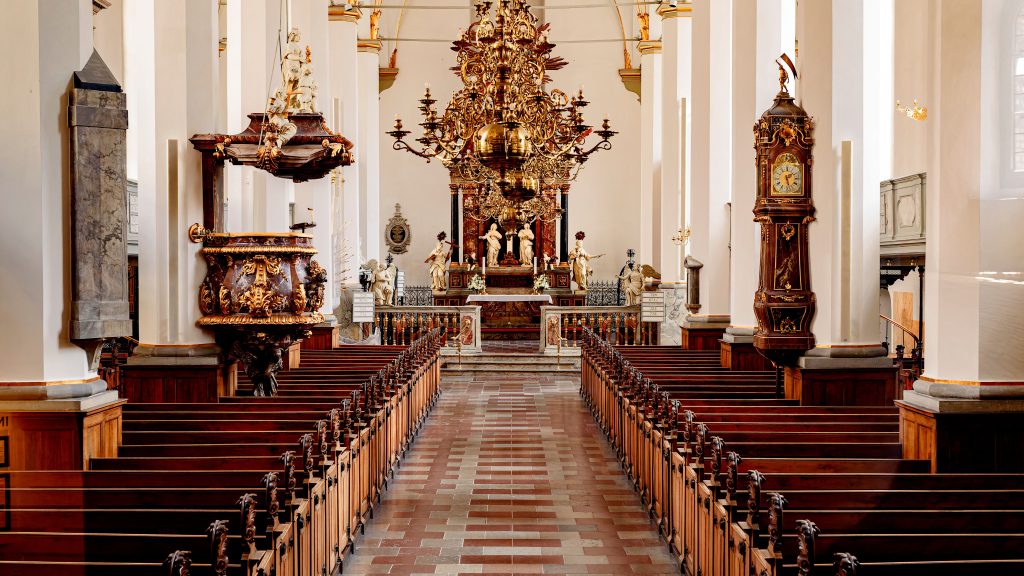If you ever pass a church, you may think, “what is the church?” You know it’s a place where people go to pray and learn about God, but it goes much deeper than just this basic definition.
However, the history behind the church may shock you.
What is the Church?


Church is meant to be a community where people can worship. If you go back to the original Greek term, “church” is meant to be a community for believers in Jesus Christ. Believers are meant to join as a congregation as a meeting before God, which is often held on Sunday.
At its base, church is not meant to be a building but a joining of people.
If you look at the New Testament, you’ll see that church is defined as the entire body of Christianity that believes in Jesus worldwide, and it does not mention a physical structure.
Historical Background of the Church
What is the church? It’s a place for people to assemble and worship, and if you’re curious about what the first church was, it was founded after the crucifixion of Jesus. His followers wanted to spread his word, and they decided to create facilities to achieve this goal.
Physical buildings or even rooms where worship could take place acted as a church.
The church would eventually spread across the Roman Empire and in the 4th century, this is when the legalization of the church occurred and allowed it to flourish.
Throughout the 2,000+ years of the church, there have been many reforms, transformations and many sects created and destroyed. Holy wars were raised to spread religion, and today, you’ll find churches of all denominations spread across countries.
Functions of the Church
Walk into any sanctuary and ask about the church purpose and you’ll receive dozens of answers. You’ll find that the main functions – and there are plenty not on the list – include:
Worship and Sacraments
What does church mean? It means a group of people congregating together for worship and sacraments. First and foremost, the church is a place to:
-
-
- Worship
- Learn
- Study
-
Your church will have a leader who reads the word of God or teaches you about it. For example, you may go to church on Sunday morning, and they’ll focus an entire sermon on one passage in the Bible.
You may or may not go to church for sacrament because these rites only occur on special occasions:
-
-
- Baptism
- Confirmation
- Holy Communion
- Confession
- Anointing of the sick
- Marriage
- Holy orders
-
Confession is the one sacrament that you may or may not perform often, depending on what denomination you are. For most people, church is a gathering point to learn more about God and form a strong community.
Community and Fellowship
Your church purpose is community and fellowship at its core. Members will sit on pews or church chairs and come together for a “meeting” where everyone will learn more about God, the Bible, passages in the Bible and other information.
Fellowship in the community is one of the main reasons for church.
People of all ages meet at the church and can worship together. You may see your family, neighbors and others in your community at church.
Social and Moral Influence of the Church
What is the meaning of church? It has been said numerous times already, but it’s a place to congregate together. Your meetings will forge the:
- Social path of the community
- Moral path of the community
If you read scripture, you’ll find that it acts as a guide for how to act morally in life. Church can help members find their moral compass and help them remain good citizens and members of the community.
Facilitating Online Giving
Thanks to advancements in church technology, it’s easier than ever for members to give to their congregation.


Online giving can come in a few forms.
- Digital donation platforms that allow members of the church and community to make donations online. Churches can often implement online donation options right on their website, which makes it easier for members to give and facilitates trust.
- Mobile giving solutions that are designed for smartphone use. With mobile apps, it’s even easier for members of all ages to give back to the church, especially young members.
Having options for online giving allows churches to expand their reach and for members to give back in ways that are more convenient for them. Often, offering online giving options results in larger donations on a more regular basis due to their convenience.
Educational and Spiritual Growth
When people ask, “what is a church for,” often, the answer relates to educational and spiritual growth.
Yes, churches are a place to worship, but they are also a place for learning and growth on a spiritual level. However, the level of education and growth will depend on the church culture.
Overall, churches provide a more structured environment where members can learn about worship and spiritual principles while connecting with other like-minded people.
Personal Impact of the Church
The church impacts individuals and the community in many ways. The social impact of the church is arguably the most significant.
Members of the community have a safe space where they can meet other like-minded people in the same life stage as them. Churches provide a wholesome environment for kids, and it’s not uncommon for adults to meet their future spouses in church.
For many, the church gives them a sense of belonging and a supportive community they can rely on when life gets tough (and it will get tough).
The personal impact varies from one person to another, but most would agree that it’s the social aspects of the church that are the most significant.
The Future of the Church
Although church attendance has been steadily declining over the last few decades, there have been great efforts to revive the church and spread the word of God.
It is the role of a church member to help aid in this effort.
Technology can help play a role in reshaping the future of the church. Livestreaming, virtual events and online gathering places can help churches connect with younger audiences and keep their congregations engaged.






